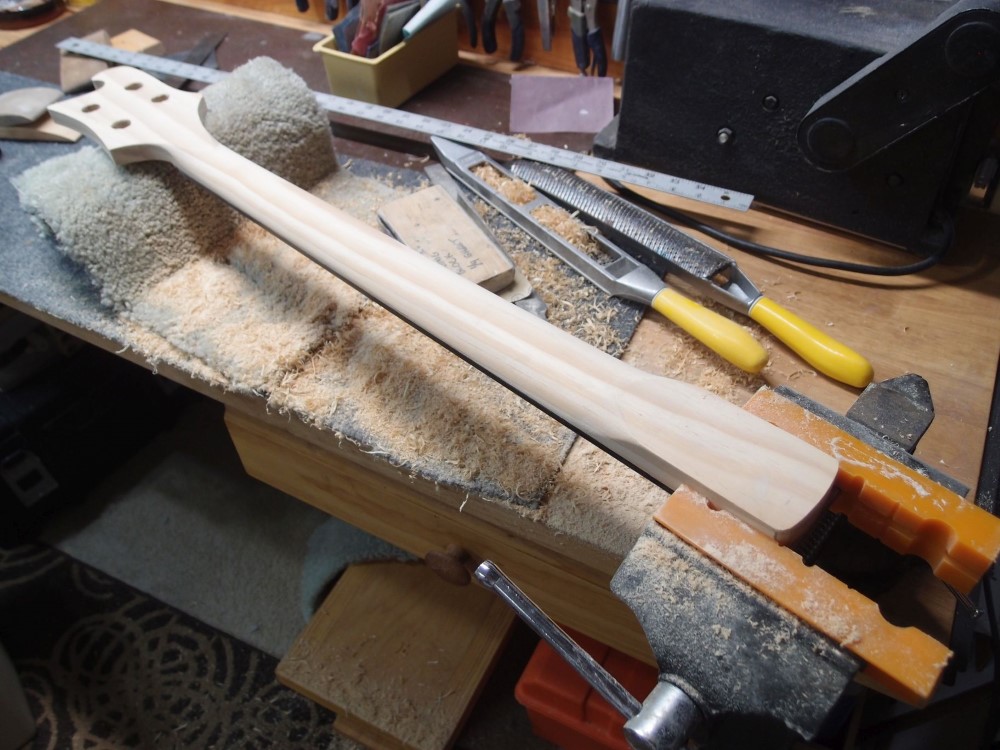String Tension

I crunched some numbers based on the excellent data that D'Addario provides, and it turns out that a 25.5" scale bass is quite workable with off-the-shelf string sets. The trick is to get a 5-string BEADG long-scale set and discard the G. Tune the remaining strings to EADG. This is equivalent to capo-ing the long scale at the 5th fret, or lopping 5 frets off the neck, so of course, it will work! In hindsight, it's all pretty obvious. I worked out the following scales and string sets:
25.5" scale:
EXL-160 (.135) : 185.4 * pounds total tension
EXL-170 (.130) : 154.6
27.0" scale:
EXL-160 (.135) : 207.8 pounds total tension
EXL-170 (.130) : 184.6 *
EPS-220 (.125) : 164.8
28.5" scale:
EXL-170 (.130) : 205.7
EPS-220 (.125) : 183.6 *
* indicates my best choice
For comparison, D'Addario EXL-160 105-50 EADG has the following total tensions:
34" scale : 202.2 pounds
32" scale : 179.1 pounds
30" scale : 160.5 pounds
For the 34" scale, the EXL-160 105-50 individual tensions break out as:
E : 40.3 - 19.9%
A : 48.4 - 23.9%
D : 60.1 - 29.7%
G : 53.4 - 26.4%
and the ratios stay exactly the same as the scale length varies. These strings play very nicely down to the 30" scale, but would probably get very sloppy below that. For the 5-string sets above, the ratios stay in the ballpark, except that the highest tension shifts from the D to the G, which makes sense, as the new G is formerly the D. If building a custom string set, you might want to replace that string with a lighter one, but I don't think that is absolutely necessary.
Another not-insurmountable problem is the tuners. A .135" string is a honking big piece of metal that is not going to want to wrap around a string post. You could force it, or you could strip the wrapping off the end and then re-secure it somehow (solder).
If you don't like these strings, any equivalent set from your favorite manufacturer should give similar results.

Questions or Inquiries?
Just want to say Hello? Sign the .